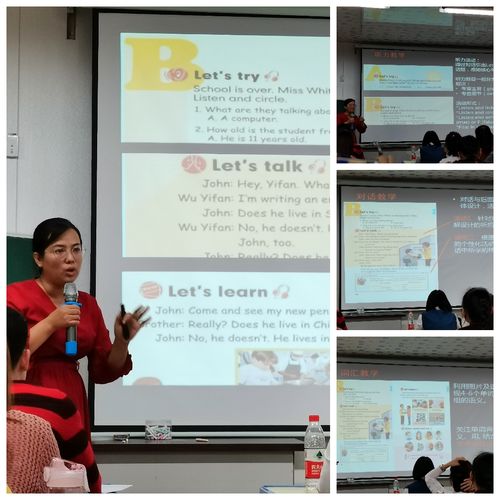教育交流的英文短语
Enhancing Education Exchange Activities through English
Education exchange activities are pivotal in fostering crosscultural understanding, promoting academic collaboration, and enhancing global perspectives among students, educators, and institutions. Utilizing English as a medium for these activities can significantly amplify their impact. Here's how:
English serves as a common ground for individuals from diverse linguistic backgrounds. By conducting education exchange activities in English, participants can communicate more effectively, reducing language barriers and fostering clearer understanding.
English is the lingua franca of academia and international communication. Conducting education exchange activities in English enables broader participation from individuals and institutions worldwide, expanding the reach and influence of these initiatives.
Collaborative projects and research initiatives are facilitated when conducted in a shared language. English proficiency allows participants to collaborate seamlessly, exchange ideas, and contribute meaningfully to joint endeavors.
Language is intricately linked with culture. Through English, education exchange activities can facilitate not only academic discourse but also cultural exchange. Participants can share their unique perspectives, traditions, and values, enriching the overall experience.
English fluency is increasingly valued as a crucial skill in today's interconnected world. By engaging in education exchange activities conducted in English, participants develop language proficiency and crosscultural competence, preparing them to thrive as global citizens.
1. Language Support:
Provide language support and resources to participants who may require assistance in improving their English proficiency. This could include language workshops, online resources, or language exchange programs.
2. Cultural Sensitivity:
Ensure cultural sensitivity by promoting an inclusive environment that respects diverse linguistic and cultural backgrounds. Encourage participants to share their experiences and perspectives while fostering mutual respect and understanding.
3. Collaboration Platforms:
Utilize digital collaboration platforms and tools that support multilingual communication and collaboration. These platforms can facilitate realtime translation, document sharing, and virtual meetings, enabling seamless interaction among participants.

4. Professional Development:
Offer professional development opportunities for educators and staff involved in organizing education exchange activities. This could include training programs focused on English language teaching, intercultural communication, and crosscultural competence.
5. Evaluation and Feedback:
Regularly evaluate the effectiveness of education exchange activities conducted in English through participant feedback and assessment. Use this feedback to identify areas for improvement and refine future initiatives.
By embracing English as a medium for education exchange activities, institutions can enhance collaboration, promote cultural understanding, and empower participants to thrive in an increasingly interconnected world.
关键词:教育交流的英文短语教育交流作文英语教育交流活动英文教育交流活动英语怎么写教育交流活动英语怎么说
上一篇:在香港买保险怎么理赔
下一篇:汉语言文学专业学位论文选题
